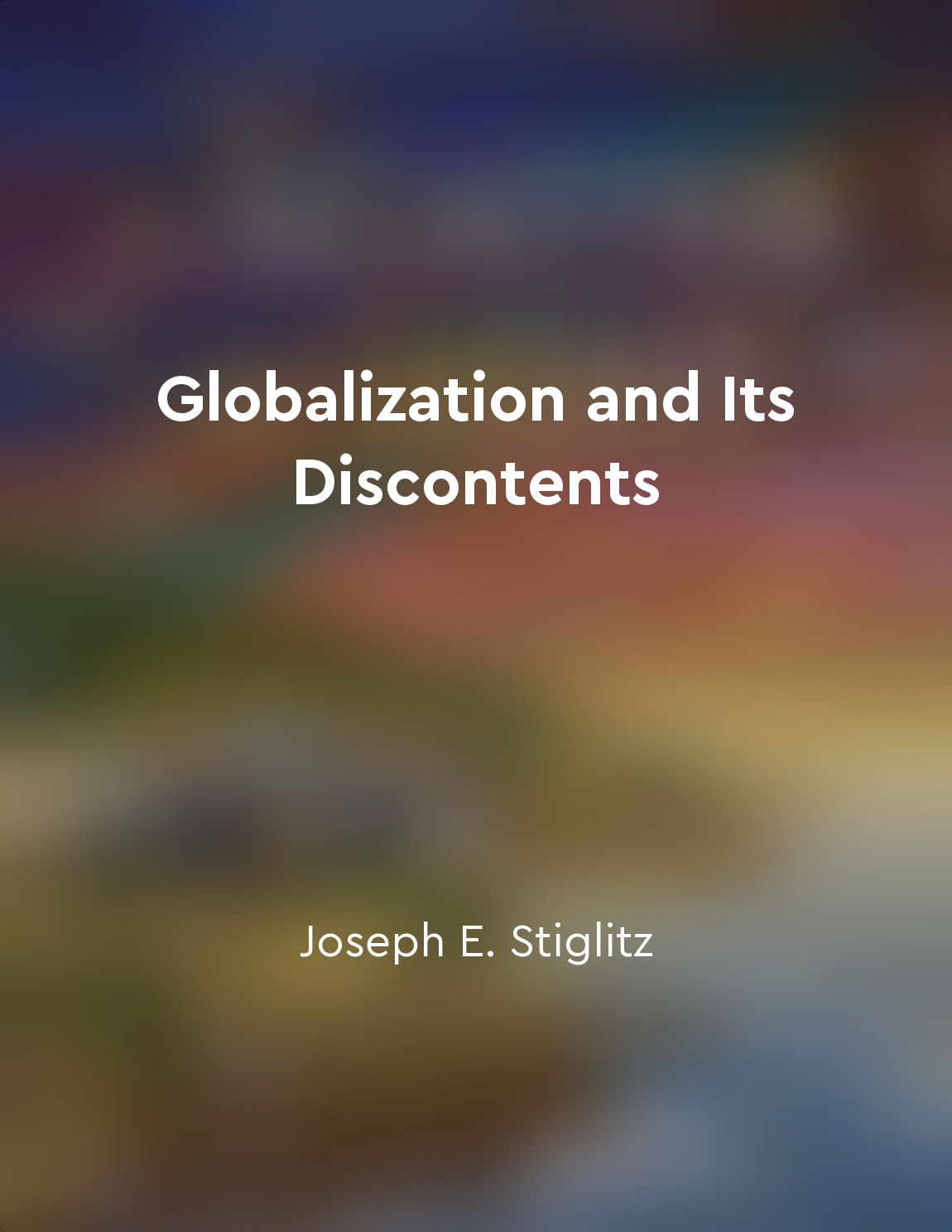Economic transformation from "summary" of The Shock Doctrine by Naomi Klein
The Shock Doctrine explores the idea that shocks - whether natural disasters, political upheavals, or economic crises - can be exploited by governments and corporations to push through radical economic policies that would not be possible under normal circumstances. These policies often involve privatization, deregulation, and cuts to social services, all in the name of "economic transformation". The concept of economic transformation is central to the book's thesis, which argues that these policies are not implemented for the benefit of the majority but rather serve the interests of a small elite. This elite takes advantage of moments of crisis to push through their agenda, using the shock of the crisis to disorient and disempower the population, making it easier to impose unpopular policies. The book provides numerous examples of economic transformation being carried out in countries around the world, from Chile in the 1970s to Russia in the 1990s to Iraq in the 2000s. In each case, a crisis - whether a military coup, the collapse of the Soviet Union, or a US-led invasion - created an opportunity for powerful interests to reshape the economy in their favor. Economic transformation is not just about changing economic policies; it is also about changing the very structure of society. The shock doctrine argues that these policies are part of a larger project to create a more unequal and undemocratic world, where the wealthy few have more power and control over the majority. By understanding the concept of economic transformation and how it is used to exploit moments of crisis, readers can better grasp the forces at play in shaping our world today. The book serves as a powerful reminder to be vigilant and critical of the policies and actions taken by governments and corporations, especially in times of crisis.Similar Posts
Extractive institutions discourage investment and entrepreneurship
Extractive institutions are those that are designed to extract resources from the economy for the benefit of a small elite, rat...
Financial stability
Financial stability is a precarious state. It is not merely a question of the banks. It is a question of the trade, the industr...
Economic reconstruction
The process of rebuilding a war-torn economy is a complex and challenging task that requires careful planning and coordination....

The IMF and World Bank play a significant role in shaping globalization policies
The involvement of the IMF and World Bank in shaping globalization policies cannot be overstated. These institutions have a sig...
Economic hit men manipulate developing countries
The manipulation of developing countries by economic hit men is a strategic tool used by powerful corporations and governments ...
Economic growth at expense of social cohesion
The idea that economic growth might be achieved at the expense of social cohesion is a central concern in understanding the wor...
Market forces threaten social welfare
The idea that market forces pose a threat to social welfare is a central theme in understanding the complex relationship betwee...
